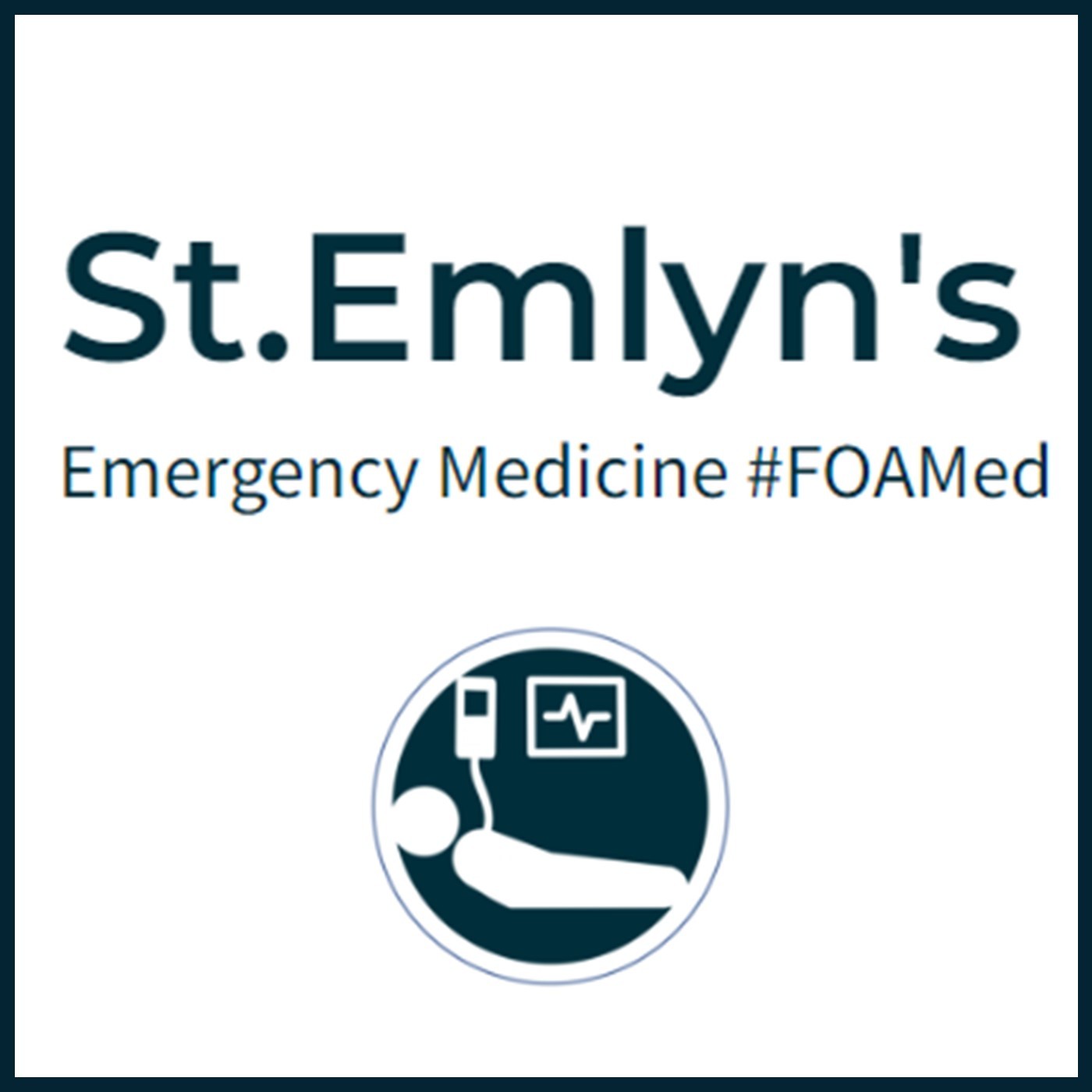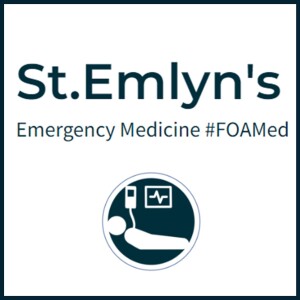
1.3M
Downloads
270
Episodes
A UK based Emergency Medicine podcast for anyone who works in emergency care. The St Emlyn ’s team are all passionate educators and clinicians who strive to bring you the best evidence based education. Our four pillars of learning are evidence-based medicine, clinical excellence, personal development and the philosophical overview of emergency care. We have a strong academic faculty and reputation for high quality education presented through multimedia platforms and articles. St Emlyn’s is a name given to a fictionalised emergency care system. This online clinical space is designed to allow clinical care to be discussed without compromising the safety or confidentiality of patients or clinicians.
Episodes

Tuesday Aug 01, 2017
Ep 96 - Everybody's free - Top Tips for the Class of 2017
Tuesday Aug 01, 2017
Tuesday Aug 01, 2017
Key Advice for Medical Professionals in Emergency Medicine
Navigating daily challenges in the demanding field of emergency medicine requires a blend of technical skills, emotional intelligence, and personal well-being. Drawing from the wisdom shared with the Class of 2017, here’s a comprehensive summary of essential advice for healthcare professionals in emergency settings.
1. Prioritize Sleep
Among the many pieces of advice, the most crucial is the emphasis on sleep. Scientific research underscores the importance of adequate rest for cognitive function and overall health. For medical professionals, sufficient sleep is vital for maintaining alertness and making sound decisions, both of which are critical in high-pressure environments like emergency departments.
2. Bring Your Best Self to Work
Each day, strive to be the best version of yourself when you come to work. However, it’s important to recognize that everyone has off days. If you’re struggling, communicate with a senior colleague. They understand the pressures of the job and can offer support. Practising kindness towards yourself, patients, and colleagues fosters a positive work environment and enhances patient care.
3. Role Model Exemplary Behavior
Your conduct in the workplace sets a standard for others. Newer staff and peers observe and learn from your actions. Therefore, it’s essential to lead by example and exhibit a professional behaviour that you would want others to emulate. This principle helps maintain high standards of care and professionalism within the department.
4. Maintain a Balanced Diet and Hydrate
The fast-paced nature of emergency medicine makes it tempting to overlook proper nutrition. However, maintaining a balanced diet and staying hydrated is crucial. Avoid fad diets and focus on eating nutritious meals and drinking plenty of fluids. Regular breaks are not just a right but a necessity for recharging and sustaining your energy levels throughout the shift.
5. The Impact of a Smile
Emotional contagion—the phenomenon where emotions are transferred from one person to another—plays a significant role in healthcare settings. A simple smile can positively influence the emotional climate of the department. By maintaining a positive demeanour, you can uplift the morale of both your colleagues and patients, contributing to a more supportive environment.
6. Effective Communication
Clear communication is fundamental in emergency medicine. Always introduce yourself to patients and colleagues with a clear “Hello, my name is...” During patient assessments, address three key questions:
- Does the patient need resuscitation?
- Does the patient need pain relief?
- Will the patient require further care as an inpatient?
These questions help prioritize and guide the patient’s treatment plan effectively.
7. Administer Pain Relief Promptly
When patients present with pain, provide analgesia early in their care. This step should precede a detailed history and examination. Addressing pain promptly not only improves patient comfort but also establishes a foundation for a more comprehensive evaluation.
8. Develop Differential Diagnoses
In emergency medicine, formulating differential diagnoses is crucial. Consider at least three possibilities for each case, such as pulmonary embolism (PE), aortic dissection, or sepsis. Understanding the range of potential diagnoses helps guide your treatment decisions. It’s important to remember that diagnostic challenges are part of the job, and outcomes may vary based on the limited information available.
9. Understand Patient Needs
Engage with patients to understand their expectations and needs. Knowing what patients hope to achieve from their visit helps tailor your approach and makes their experience more manageable. Always seek to improve their day, even if your own is challenging. Empathy and understanding are key to providing compassionate care.
10. Embrace Teamwork
Emergency medicine relies heavily on teamwork. You’ll frequently undertake tasks that extend beyond your specific role, such as checking vital signs, transporting patients, or administering medications. Embrace these tasks as part of a collective effort to enhance patient care. Teamwork ensures that all aspects of patient care are covered and supports a cohesive work environment.
11. Plan and Communicate
Before discussing a patient case with a senior, develop your own plan. Present your questions and concerns early rather than waiting for investigations. Effective decision-making often relies on history and examination, so keeping your senior and nursing team updated with your plan is essential. This approach facilitates timely and informed decision-making.
12. Learn and Seek Advice
Aim to learn three new things each day. Your senior colleagues possess a wealth of experience and knowledge. Don’t hesitate to ask questions and seek their advice. Their insights can help you navigate complex cases and improve your practice. As a fresh perspective, your observations and suggestions for improvement are valuable.
13. Find Joy in Your Work
Despite the inherent challenges of emergency medicine, find joy in your role. Being part of patients’ lives during their moments of crisis is a profound privilege. Maintain a positive outlook and remember that your work, though demanding, makes a significant difference in people’s lives. And always ensure you get enough sleep to perform at your best.
Conclusion
Navigating the world of emergency medicine requires balancing personal well-being, professional behavior, and effective patient care. By prioritizing sleep, maintaining a balanced diet, practicing kindness, and embracing teamwork, you can enhance your performance and job satisfaction. Clear communication, prompt pain management, and ongoing learning are essential components of providing high-quality care. Above all, remember the privilege of being part of patients' lives during critical moments and strive to make a positive impact every day.

Comments (0)
To leave or reply to comments, please download free Podbean or
No Comments
To leave or reply to comments,
please download free Podbean App.